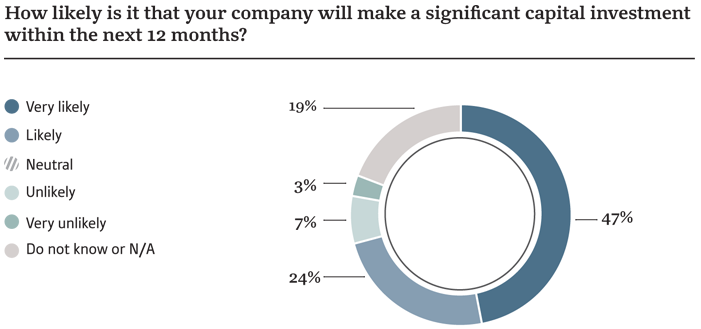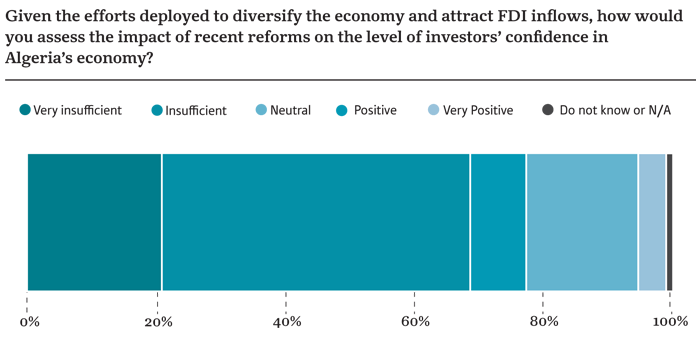 Souhir Mzali Africa Regional Editor, Oxford Business Group
Souhir Mzali Africa Regional Editor, Oxford Business Group
With the import ban launched in 2016 having coincided with a drop in oil and gas prices, in early 2018 Algeria started to rethink it, with a view to improving the country’s finances and easing a challenging tax situation. In June the Parliament duly approved a measure replacing the ban on certain products with Customs duties.
The 2014-17 period saw the effectiveness of the import ban called into question: while it was intended to boost local industries and promote competitiveness internally, results have yet to be seen. The period was also marked by a significant drop in oil prices, highlighting the need for Algeria to promptly implement economic diversification strategies.
Oil price uptick has lifted spirits
For the last 12 months, however, perspectives have changed only gradually, thanks to a rise in commodity prices that has allowed the largely hydrocarbons-dependent country, where oil and gas revenues account for more than 90% of total exports, to see some growth again.
The renewed strength of oil prices has undoubtedly helped local businesses. Over 100 CEOs were surveyed in our latest OBG Business Barometer: Algeria CEO Survey, with 73% saying they had positive (61%) or very positive (12%) expectations of local business conditions in the coming 12 months, up from 61% in the November 2017 edition of the survey. However, with 2019 a year of presidential elections, this may prove somewhat overly optimistic. A similar percentage, 71%, is considering making a significant capital investment in the same period.

With such a large degree of reliance on hydrocarbons, we might expect that most of these investments would be focused on the energy sector. Offshore exploration, for example, is one of the top economic news stories expected in early 2019, with Sonatrach, the state oil and gas company, having partnered successfully with the Italian company Eni and French giant Total to pursue offshore drilling. Interviews with Abdelmoumen Ould Kaddour, CEO of Sonatrach, and Claudio Descalzi, CEO of Eni, will be featured in OBG’s upcoming report on Algeria, to be released in December, along with conversations with key players and analysis of the sector’s prospects.
The country is also making efforts to maintain its position as a gas supplier, particularly to the EU. In this context, the European commissioner for climate action and energy, Miguel Arias Cañete, started a visit on November 20 with a view to re-affirming the energy partnership between the EU and Algeria.

Diversification needs to gather speed
Notwithstanding renewed confidence in the energy sector, the 2014-17 period highlighted once again the importance of diversification for a country that still relies too heavily on the upstream segment. Unsurprisingly, 72% of the CEOs surveyed signal a drop in oil prices as the top external event that could impact the economy of Algeria in the short to medium term.
CEOs have demanded a series of reforms in recent years aimed at ensuring that diversification happens efficiently and swiftly. While minor reforms have taken place recently – on Custom duties and financing means, for example – the business community sees it as essential for more work to be done on structural reforms.
And our survey reflects this: despite certain efforts made to date to diversify the economy and attract foreign direct investment (FDI) inflows, 69% of CEOs see the impact of recent reforms on investor confidence as insufficient (48%) or very insufficient (21%). The 51:49 rule, which limits the ownership of any Algeria-based company by foreign shareholders to 49%, is, as always, a point of discussion. Furthermore, the tax environment is widely seen as non-competitive, with 64% of CEOs declaring it uncompetitive or very uncompetitive, against only 24% who see it as competitive or very competitive. With regard to the level of transparency, meanwhile, opinion was divided, with 34% saying levels of transparency were high, but 46% were of the opposite opinion.

Young people are key to a diversified future
A crucial population segment in Algeria is that of young people. With a 28% unemployment rate, young Algerians are now facing the need to find new paths, and entrepreneurship has started to become a relevant trend in the country. While initiatives are gradually being put in place there is still a lack of strong financial support. When CEOs were asked about local skills availability, they said the country needs leadership (26%), research and development (21%), and business administration (20%). Comprehensive entrepreneurship programmes would bolster all of these areas, and perhaps this will be one of Algeria’s next focuses in its drive to diversify.
This information was originally published by Oxford Business Group (OBG), the global publishing, research and consultancy firm. Copyright Oxford Business Group 2017. Published under permission by OBG. For economic news about Algeria and other countries covered by OBG, please click here.
KeyFacts Energy Algeria country page
 KEYFACT Energy
KEYFACT Energy